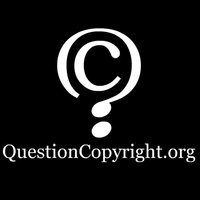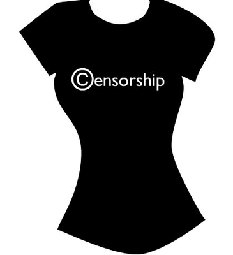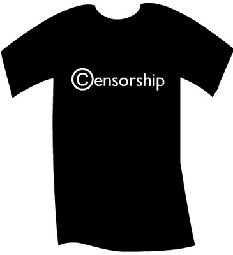Perfect symmetry: J. D. Salinger complains that his book is censored, then J. D. Salinger turns around and censors someone else’s book.
He probably wouldn’t see it that way. He’d probably say he’s “protecting his property” or something like that. But in fact what he has done is ban a book — a sequel someone else wrote to Salinger’s book The Catcher in the Rye.
Salinger had other options. For example, if he doesn’t like this particular sequel, he could simply not endorse it. In fact, given the extraordinary powers current copyright law grants him, he could even insist that the sequel be marked as “unauthorized”, so that his name and reputation wouldn’t be associated with it. (Of course, in a world where people didn’t assume that a sequel must be authorized, even that step wouldn’t be necessary.)
But instead of choosing an option that respects the freedom of readers and of other authors, he’s suing to ban the new book. The usual pieties about freedom of speech (“the best antidote to bad speech is better speech”) somehow melt away and magically don’t apply for him, even though if he were asked, he would probably claim that he agrees with them. What is it about copyright, that it manages to sink so deeply into people’s worldview that they cannot see censorship when it’s right in front of their faces? When they’re the ones doing the censoring?
On the other hand, the author of this sequel, Fredrik Colting, gets it:
“I am pretty blown away by the judge’s decision. Call me an ignorant Swede, but the last thing I thought possible in the U.S. was that you banned books.”
His lawyer, Edward H. Rosenthal, raises the free speech issue too:
“…members of the public are deprived of the chance to read the book and decide for themselves whether it adds to their understanding of Salinger and his work.”
Though really, why should it even be necessary that the book add to anyone’s understanding of Salinger’s work? Maybe it does, maybe it doesn’t. Either way, it still shouldn’t be censored.
What can you do? Well, wear one of our ©ensorship shirts (women’s and men’s available in various sizes), and when someone asks you about it, tell them how copyright leads some authors to ban other authors’ books. The back of the shirt has our web site address and logo:

Wearing them really works, by the way. I wore one on a train recently and wound up having a great conversation about copyright with two people, one of them a musician coming back from a gig, after they asked me about the front.



I’m shocked and dismayed that copyright can be taken so far. Suddenly, any creative project is in danger of being banned if somebody doesn’t like it, and they’ll just claim it infringes somebody’s copyright. It’s easy to find resemblances (sometimes major!) among works of art. For what it’s worth, here’s my own take on this story (second half of the post).
Felix Pleșoianu
Thanks for the link.
You draw a distinction between a whole new novel (like this one) that re-uses an existing protagonist, and a compilation such as the Harry Potter Lexicon. But really, why should it be okay to ban the latter either? There’s nothing sacred about the injection of creativity. Sometimes a reorganization of existing material can produce a useful work too — look at all the Bible concordances that have been published over the years, legal because the Bible is public domain. The law shouldn’t be in the position of deciding what’s useful or creative and what’s not: let the public decide that.
I draw a distinction between the two cases, not between the two works. Admittedly my language wasn’t clear. It’s not okay to ban anything, of course. But at least the Harry Potter Lexicon wasn’t sued out of existence. It was just barred from commercial publication. Not a nice thing to do, but at least it’s better than outright censorship.
Felix Pleșoianu
Ah, I see now. Thanks for clarifying.
I like the design. Thanks for sharing.
…it’s the US government. Authors are free to be cranky nutbags and complain and rail and sue. But they can’t ban books on their own. It’s the government banning the books. It’s the government making and enforcing the laws. Granted, lawmakers are owned by Big Media, but government is still doing the actual banning and enforcing. Not authors. Not even Big Media corporations – they can do nothing without government support, which is why they invest in legislators.
Authors should be able to go senile without threatening everyone’s freedom of speech.
This is a case of a terrible decision by a sub-par judge. Gee, like that doesn’t happen all the time. Not exactly an argument to repeal copyright protection, more like time to appeal the ruling where it would likely be struck down. Also time to call for more scrutiny on that judge too.
In practise, it’s the authors. This is because of some weird law that says only the copyright holders can sue someone for copyright infringement. If youtube hosts a copyrighted video without permission, I cannot sue them, only the copyright holders can. It’s still illegal, but there’s nothing I can do about it.
This often works against competitors. Imagine if Microsoft competitors such as Corel could sue companies for pirating Microsoft Office, making their cheaper product much more attractive! Unfortunately, they can’t, and Microsoft prefers to see their products pirated rather than see people switch to cheaper or free and open source software.
It’s both. The government gives the authors the tool; the authors choose to use the tool.
That makes it look like the problem is just getting rights holders to “use copyright responsibly” rather than acknowledging they’re bad laws that invite abuse.
It’s like arming a senile old fart with automatic weapons, and then when he kills people saying “Guns don’t kill people. People kill people.”
That said, I get your point; someone is responsible for pulling the metaphorical trigger, and you can’t shoot someone else’s gun.
Mmm. Tactically, good point: instead of emphasizing Salinger’s poor choice, emphasize the flawed system that gave him that choice in the first place.
Don’t they have the Internet in Sweden?
Or, as I suspect, has Mr. Colton chosen to self-censor by prohibiting others from copying his work? If so, I hardly think he has anything to complain about when Mr. Salinger beats him at his own game.
A copyright infringment action (such as Salinger is bringing) doesn’t distinguish between print and online distribution. Colton would not be allowed to distribute his book in any medium, Internet included.
I don’t know anything about the restrictiveness of the terms under which Colton’s own book is being distributed; I suspect your guess is right that it’s traditional copyright. But this is not an all-or-nothing issue: while Colton is probably not some kind of copyright reformer, he has at least made it clear that he has a more permissive stance on derivative works than Salinger does, and that if someone were to make a derivative from his book, he wouldn’t complain.
In any case, Nina’s right: the real point here is the system that makes this suppression possible. It’s a pity that Salinger chose to take advantage of that system (in a particularly restrictive way that Colton so far has not matched), but the issue is the system, not Salinger’s personal willingness to censor.
All the Creative Commons licenses support censorship as well. They call it Moral Rights which effectively says if you don’t like the way someone is using your work you can stop them.
I don’t really see the difference between that and normal copyright. The assumption is “moral” means something special but I could just as easily decide that some techno mashup of Sita is immoral to me just as J. D. Salinger can choose that some derivative is immoral to him. Or, I could decide that I don’t want my work used to support the politics I disagree with which would seriously be censorship.
If you want to make this argument, maybe you shouldn’t be promoting licenses that effectively have the same issues.
QuestionCopyright doesn’t encourage the use of any license that allows that kind of restriction.
But look more carefully at the Moral Rights link you point to. Creative Commons isn’t saying that their licences give you the right to stop derivation of your work; they’re just saying you have the right (under their licenses) to ask that your name be removed from the result — in other words, a right of reverse attribution. That is very different from censorship; in a way it’s closer to trademark law (identity protection) than copyright law (monopolies on copying).
They then add that in some jurisdictions, you may have the right (independently of their licenses) to censor “derogative” treatment of your work. This is simply an accurate statement of fact; Creative Commons’s statement neither endorses nor objects to it, they merely describe it. This so-called “moral rights” law (it is a term of art) is separate from the commercial-monopoly part of copyright, and is unaffected by the Creative Commons licenses. (You have a point in that that they could choose not to include that question in their FAQ, but because the “moral rights” tradition is so important outside the U.S., it probably is genuinely a frequently-asked question and they might as well just answer it. I agree that it’s censorship by another name; all one really needs is the ability to have one’s name removed from works one doesn’t endorse.)
Finally, remember that Creative Commons the organization is not the same thing as the Creative Commons licenses. There are various CC licenses, and they differ in important ways. As far as I know, the only three that are truly “free” licenses — “free” as in “allowing freedom” — are CC-0 (similar to public domain), CC Attribution, and CC Attribution-ShareAlike. CC also has “NC” (non-commercial) and “ND” (no derivatives) variants, but any license with NC or ND terms is not a free license. Creative Commons is quite up front about this, by the way: they are aware of the free/non-free distinction and are accurate in how they describe their licenses.
You can see all the CC licenses here. QuestionCopyright.org only recommends the three free licenses; if you see any example of us recommending one of the others, please let us know, because it’s not intentional.